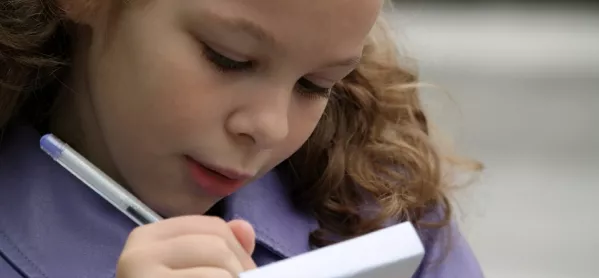- Home
- 7 ways to boost children’s vocabulary
7 ways to boost children’s vocabulary

Communication is key. This was a mantra I was taught early on in my “former life” in business management. It’s something that applies to all businesses, all aspects of life - and it applies to our children, too. Children need to learn how to communicate their needs and their wants clearly, and to share information with others. This is not only necessary for school, but it’s also a life skill - and one we need to invest time into developing.
An important part of this is supporting children to expand their vocabulary. And an expansive vocabulary is crucial to helping children to achieve highly on the new reading tests, too.
So what can be done to boost children’s vocabulary?
1. Expose children to a wide variety of language
Children need to be exposed to a rich vocabulary that challenges them appropriately to expand the words they know, through reading books, texts used in English lessons and texts used throughout the school day. It is our duty to choose books and texts that offer opportunities to explore new language. Never be afraid of introducing something that might be slightly beyond your pupils. Instead, be prepared to invest the time in discussing new words and providing opportunities for children to use them orally or in writing.
2. Put vocabulary on display
New vocabulary can be a barrier to some children accessing the work in a particular topic. One way to overcome this is to include new vocabulary alongside a picture or definition in a display at the start of a topic. General vocabulary can be displayed, too. Make room in the classroom to build up a vocabulary wall, which children can add words that they hear or read to, either as a challenge for others to find the meaning of or to support them in writing more interesting sentences. I have found that brick-wall-effect paper is great for this as children love to “graffiti” their words directly on to it.
3. Build time into English lessons for experimenting with vocabulary
When introducing a new text, after spending time reading to enjoy and absorb it, allow for a session in which children can explore unfamiliar vocabulary within it. Empower them to find the meanings of new words and give them chances to experiment with using them. Children will need to be taught how to use dictionaries and thesauruses to do this. Vocabulary lessons then become the perfect opportunity for children to practise their dictionary skills whilst deepening their understanding of their newly-acquired vocabulary.
4. Make time for lots of speaking and listening activities
Across the key stages, the use of rhymes, drama, talk partners and role play can give children great opportunities to experiment with using new vocabulary. Provide a word bank of recently studied words for pupils and listen in to see how many they are able to use accurately. Careful observation and timely intervention in such tasks can develop children’s vocabulary by encouraging them to use words they might not ordinarily use.
5. Be a role model
Don’t be afraid to use language that the children might not be familiar with. Model replacing a familiar word with another the children might not recognise, simply by repeating and rewording a sentence. You might also want to pause to discuss the new word and add it to the vocabulary wall - but doing this every time you use an unfamiliar word might prove time-consuming, so be selective.
6. Play games with language
Consider having a word of the day or week, which could be drawn from the statutory word lists or from texts you are reading as a class. Give children time to say the word, spell the word, look up its meaning, use it in their own sentences and write a definition for it. There are also plenty of great games out there that allow children to experiment with language. Pie Corbett has lots of great word games in his JumpStart! Literacy and JumpStart! Grammar books, and popular family games such as charades, Taboo and Pictionary can easily be adapted to make whole-class or group games using a class vocabulary bank.
7. Give children real reasons to communicate
By providing children with chances to write letters, which are actually sent to their intended recipients; to talk to visitors in school; to make presentations to their own or another class; or to perform drama to parents, you are highlighting the real-life ways in which communication is important and why selecting the best vocabulary for that matters. Activities like these give children a real reason to communicate and use their expanding vocabularies.
Rachel Lopiccolo is Year 5 teacher and English and history subject leader at Waddington and West Bradford CE Primary School, Lancashire
Want to keep up with the latest education news and opinion? Follow Tes on Twitter and like Tes on Facebook
Keep reading for just £1 per month
You've reached your limit of free articles this month. Subscribe for £1 per month for three months and get:
- Unlimited access to all Tes magazine content
- Exclusive subscriber-only stories
- Award-winning email newsletters



